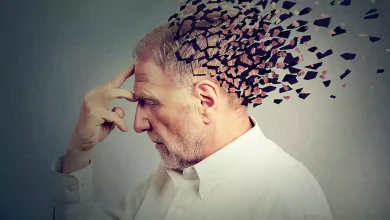All about Cancer

What is Cancer?
Cancer is the umbrella term for a large number of diseases caused because of the growth of abnormal cells that divide and multiply uncontrollably
and have the capability to infiltrate and damage normal body tissue. Cancer usually can spread all over your body.
Cancer can begin in any part of the human body, which is made up of billions of cells. Generally, human cells develop and multiply through a procedure known as cell division to create new cells as the body requires them. When cells grow old or are damaged, they die, and new cells grow in their place.
In some instances, this orderly procedure breaks down, and abnormal or damaged cells grow and multiply and form tumors,
which are actually lumps of tissue. Tumors can be either cancerous or not cancerous and the cancerous tumors spread into adjacent tissues and can
also spread to other areas in the body to form new tumors.
What are the Types of Cancer?
There are five major types of cancer including:
Carcinoma: It is the most common type of cancer. It is a cancer that develops in epithelial tissue. Epithelial tissue includes most of your organs, the internal passageways in your body such as your esophagus, and your skin. Most cancers affecting your skin, breasts, kidney, liver, lungs, pancreas, prostate gland, head, and neck come under this type of cancer.
Sarcoma: Sarcomas are a rare type of cancer and are different from the much more common carcinomas because it develops in different kind of tissue. Sarcomas develop in connective tissue means the cells that link or support other types of tissues in your body. These cancers mostly develop in the bones, muscles, tendons, cartilage, nerves, fat, and blood vessels of your arms and legs, but they can also happen in other parts of your body.
Melanoma: Melanomas are cancers that develop in the cells that make the pigment in the skin. It’s the most severe type of skin cancer, that occurs in the cells that create melanin — the pigment that gives your skin its color. Melanoma usually develops in the eyes and, rarely, inside your body, like in the nose or throat.
Lymphoma:mLymphoma is a cancer that grows in infection-fighting cells of the immune system, known as lymphocytes. These cells are present in the spleen, lymph nodes, thymus, bone marrow, and other areas of the body. When you develop lymphoma, lymphocytes mutate and grow out of control.
Leukemia: Leukemia is a blood cancer that develops because of the increase in the number of white blood cells in your body. Those white blood cells remove the red blood cells and platelets from your body.

What are the Symptoms of Cancer?
The signs and symptoms of cancer depend on the type of cancer and the affected area but some common symptoms of cancer include:
- Getting tired easily
- Lump under the skin that can be felt
- Unintended weight loss or gain
- Change in skin colour like yellowing, darkening, or redness of the skin, sores not healing
- Changes to existing moles
- Changes in bladder or bowel habits
- Loss of appetite
- Difficulty in sleeping
- Continuous cough
- Trouble breathing
- Finding it difficult to swallow food
- Hoarseness
- Constant indigestion or discomfort after eating
- Persistent pain in joints and muscles
- Continuous, unexplained fevers or night sweats
- Unexplained bleeding or bruising
What are the Causes of Cancer?
Cancer is a genetic problem and it usually occurs when genes that manage cell activity mutate and develop abnormal cells that divide and multiply, eventually affecting how your body functions. According to researchers, 5% to 12% of all cancers are developed because of inherited genetic mutations that are not in your control.
More regularly, cancer cells develop because of an acquired genetic mutation. Acquired genetic mutations happen over the course of your lifetime.

What are the Risk Factors of Cancer?
Various risk factors increase your chance of developing cancer.
Smoking: Smoking tobacco in the form of cigarettes and cigars and inhaling e-cigarettes increase your risk of developing lung, pancreatic, esophageal, and oral cancer. Talong tobacco in other forms such as chewing tobacco can lead to oral cancer.
Diet: Having food with high fat or high-sugar increases your risk for various types of cancer. You’re also more prone to cancer if you don’t get enough physical exercise.
Environment: Toxins in your environment like asbestos, pesticides, and radon, and getting exposed to them can eventually lead to cancer.
Radiation exposure: Ultraviolet (UV) radiation from the sun significantly raises the risk of developing skin cancer. Over-exposure to radiation treatment
can also increase the chance of developing skin cancer
Hormone therapy: Women and people who went through hormone replacement therapy have an increased risk for cancer such as breast cancer and endometrial cancer.
What are the Complications of Cancer?
Cancer and its treatment can cause numerous complications, including:
Pain: Pain may occur because of cancer or its treatment, but all cancers are not painful. Medications and other treatments can effectively reduce pain caused because of cancer.
Tiredness: People with cancer may feel tired easily and for a long period. Tiredness linked with chemotherapy or radiation therapy can be treated but it’s generally temporary.
Difficulty in Breathing:Cancer or cancer treatment may make it difficult to breathe and treatments may bring relief.
Nausea: Some types of cancers and cancer treatments may lead to nausea. Your doctor can sometimes tell if your treatment may cause nausea. Medications and other treatments are available to prevent or reduce nausea.
Diarrhea or Constipation: Cancer and cancer treatment can cause diarrhea or constipation.
Losing Weight: Losing weight is a main complication of cancer and cancer treatment because cancer absorbs food from healthy cells and deprives them of nutrients. This is often not affected by how many calories or what kind of food is eaten and its treatment is difficult. In most instances, using artificial nutrition through tubes into the stomach or vein is not helpful to stop weight loss.
Chemical Changes in the Body: Cancer can disrupt the usual chemical balance in your body and raise your risk of serious complications. Signs and symptoms of chemical imbalances are excessive thirst, regular urination, constipation, and confusion.
Problems in the Brain and Nervous System: Cancer can affect nerves and result in pain and loss of function in any part of your body. Cancer involving the brain can lead to headaches and stroke-like symptoms, like weakness on one side of your body.
Strange Reaction of Immune System to Cancer: Sometimes the body’s immune system may react to cancer by attacking healthy cells. Known as paraneoplastic syndromes, these very rare reactions can lead to a variety of problems like difficulty in walking and seizures.
Spread of Cancer: As cancer progresses, it may spread to other areas of the body. Where cancer spreads is based on the type of cancer.
Recurring Cancer: Cancer survivors have a risk of cancer coming back known as cancer recurrence. Some cancers have more chances to return as compared to others. Consult with your doctor about what you can do to decrease your risk of cancer recurrence.
How is Cancer Diagnosed?
Physical Exam:In this process, your doctor may check the areas of your body for lumps that may detect cancer. Additionally, the doctor may search for abnormalities, like changes in skin color or enlargement of an organ, that may show signs of cancer.
Laboratory Tests: Laboratory tests include urine and blood tests, which can aid your doctor to detect abnormalities that may occur because of cancer. For example, a common blood test called complete blood count may reveal an unusual number or type of white blood cells which is because of leukemia.
Imaging Tests: In this test, the doctor will examine your bones and internal organs in a noninvasive way. Imaging tests used to diagnose cancer includes a computerized tomography (CT) scan, bone scan, positron emission tomography (PET) scan, magnetic resonance imaging (MRI), X-ray and ultrasound, etc.
Biopsy: In this process, tissues are removed from the affected area and are examined under a
microscope to check whether there are cancer cells there or not.
What are the Treatment Options available for Cancer?
The treatment of cancer depends on various factors like the type, stage, or severity of cancer,
other health conditions you may have, the size of cancer, etc. The common treatment options for cancer include:
Surgery: If the cancer is diagnosed in an early stage then it can be removed through surgery. The
surgery best suited for you depend on the type of your cancer, the stage of cancer, and
the area where you have cancer.
Radiation Therapy: Radiation therapy kills the cancer cells by using high-powered energy beams, like X-rays or
protons. Radiation therapy is mostly joined with chemotherapy as the prime treatment for
locally advanced cervical cancers. Radiation therapy can also be used after surgery if there is an
augmented risk that the cancer may come back.
Chemotherapy: Strong chemicals as medicines are used to kill cancer cells in chemotherapy. It is usually given
through a vein or swallowed in pill form. Occasionally both procedures are used. For locally
advanced cervical cancer, small doses of chemotherapy are given along with radiation therapy,
since chemotherapy may increase the effects of the radiation. Higher doses of chemotherapy
may be suggested to ease the symptoms of the very advanced stage of cancer.
Targeted therapy: In Targeted drug treatments the focus is given to definite weaknesses present inside the cancer
cells. By blocking these weaknesses, targeted drug treatments may kill the cancer cells and it is
generally combined with chemotherapy. It is mostly used to treat advanced cancer.
Immunotherapy: Immunotherapy is a drug treatment where your immune system is made stronger to curb
cancer. Your body’s disease-fighting immune system may not fight the cancer cells because the
cancer cells produce proteins that make them untraceable by the immune system cells.
Immunotherapy is used when other treatment options are not working anymore.
Living with Cancer: Getting diagnosed with cancer can be frightening and stressful. Cancer is
curable and getting treatment in the early stages increases the chances of getting cured quite
highly. Coping with the emotional impact that comes with cancer is not easy but you
can take steps to cope with the shock and grief such as learning about the extent of your cancer
you have and treatment options. Keep your friends and family close as it will make you feel
strong and help you to deal with it more efficiently.
Whom to Consult?
If you feel the symptoms of any type of cancer, usually unexpected weight loss, constant body pain, etc. immediately visit your doctor who may recommend you to a cancer specialist. Go for the tests needed to diagnose the condition and take all the necessary treatments. The most important thing after being diagnosed is not to panic. Get all the information regarding the type and severity of your cancer and take treatment accordingly.




